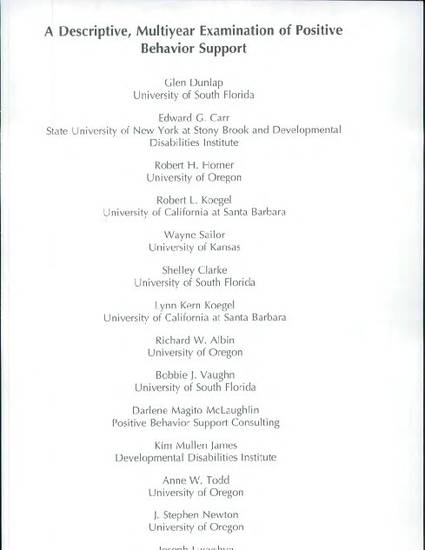
A major goal of positive behavior support (PBS) is to produce broad-based, long-term improvements in adaptive behavior; however, the empirical base, at present, is mainly composed of relatively short-term studies carried out in circumscribed contexts. Therefore, a need exists for reliable data that can inform the field regarding the comprehensive lifestyle effects of PBS implementation in natural community contexts over extended periods of time. The current investigation was conducted to provide a descriptive analysis of PBS with diverse participants and broad measurement strategies over multiple years. Using extensive data portfolios for 21 participants, we employed rating scales to quantify changes in key variables from baseline through 2 years of intervention. The data revealed variable levels of intervention integrity, generalized reductions in problem behavior with occasional relapses, and encouraging enhancements across six domains of quality of life. This study represents an initial attempt to understand the processes and outcomes of behavioral support by documenting behavioral patterns across full days, entire years, and all environments. We discuss the need to consider new conceptual and methodological frameworks for further study of efficacious and sustainable behavior support.
© 2010 Council for Children with Behavioral Disorders

Author Posting © Council for Children with Behavioral Disorders, 2010. This article is posted here by permission of Council for Children with Behavioral Disorders for personal use, not for redistribution. The article was published in Behavioral Disorders, Volume 35, Issue 4, August 2010, Pages 259-279.